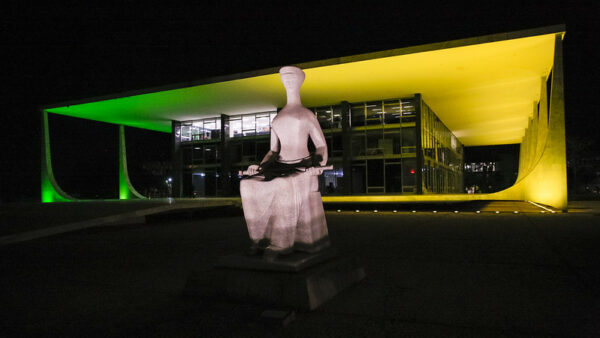The intense floods that chastise Rio Grande do Sul, Brazil’s southernmost state, have killed over 90 people, forced hundreds of thousands more from their homes, destroyed several cities, and shut down the local economy in every way — from damaged crops to paralyzed logistics networks to the closure of all commerce.
Among the most shocking images of the chaos come from the state capital of Porto Alegre, with the city’s famous landmarks under water, including the football stadiums of major local clubs Grêmio and Internacional.
The flooded stadiums have been converted into donation collection points for the victims of the tragedy. Meanwhile, squads of both teams (as well as others in Rio Grande do Sul state) are unable to train or play matches, which is already affecting the national football calendar.
With flights suspended and almost all state roads partially or totally destroyed, the Rio Grande do Sul football federation has paused all state-level football championships. Grêmio, Internacional, and Juventude (based in the city of Caxias do Sul, north of the capital) have requested Brazil’s national football governing body, the CBF, to postpone their fixtures for at least 20 days.
The CBF approved the request on Tuesday, publishing a statement confirming the postponement of “all matches involving Rio Grande do Sul clubs until May 27.”
The measure will be valid for both home and away games, citing the region’s current “state of public calamity.”

This past weekend’s matches involving Rio Grande do Sul clubs were postponed, as were Grêmio and International’s midweek continental games.
There have been calls for the Rio Grande do Sul clubs to temporarily move their operations to the southern state of Paraná, using the facilities of existing clubs in the region. For the time being, the clubs are against this idea.
Fears of football calendar chaos
One possibility, floated by players from affected clubs and football pundits alike, is a complete pause to all national championships while the Rio Grande do Sul teams are unable to return to their facilities. The chances of the Brazilian Football Confederation imposing a blanket suspension, however, are slim — and far from being a consensus among top-division clubs.
According to sources heard by The Brazilian Report, the main reason that a full postponement is not on the cards would be the immense challenge of rearranging Brazil’s already packed-to-the-brim football calendar.
“All facts would be enough to understand that the matches of Rio Grande do Sul clubs will have to be continually postponed until at least the first week of June,” writes Irlan Simões, a sports business specialist and TV commentator.
Mr. Simões says that Brazil should take the 2023 Turkey-Syria earthquakes as an example. Due to the widespread destruction and huge death toll (around 60,000 people died in the disaster), Turkey suspended its football competitions for two weeks.
“It is hoped that the floods in Rio Grande do Sul will not leave such a terrible death toll as seen in Turkey, but it is not possible to measure this environmental disaster just by fatalities. The post-tragedy period will be chaotic, with a proliferation of diseases, damaged structures, and social traumas, making it hard to resume daily life,” he says.
State authorities say at least 1.3 million people have been affected by the floods. Over 155,000 people had been displaced, and more than 48,000 were in shelters. Entire neighborhoods in several cities are covered in water.
The federal government declared on Sunday a state of calamity in 336 of the 495 municipalities in Rio Grande do Sul, which helps speed up the receipt of federal funds to address the needs of areas hit by disasters. The government also authorized the payment of BRL 580 million (USD 114 million) in budgetary earmarks for hundreds of cities across the state.
An ongoing Armed Forces search and rescue operation in the region has employed nine aircraft, 98 ships, and 936 troops from the Navy, Army, and Air Force. The military is also handing out water, food, and donations.


 Search
Search










































